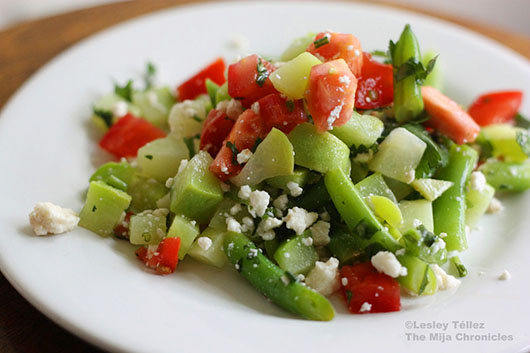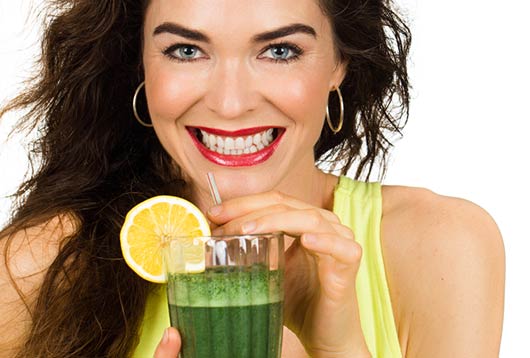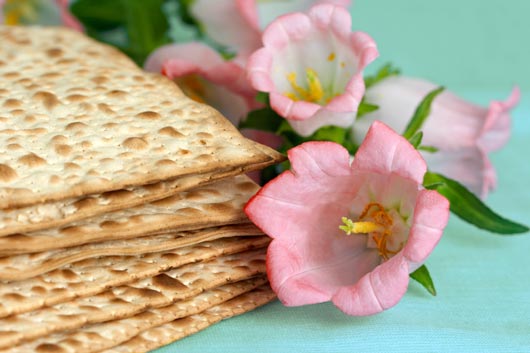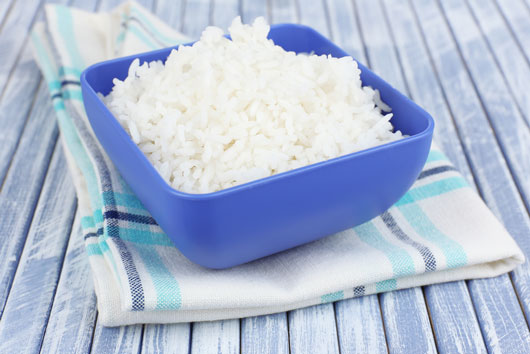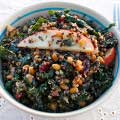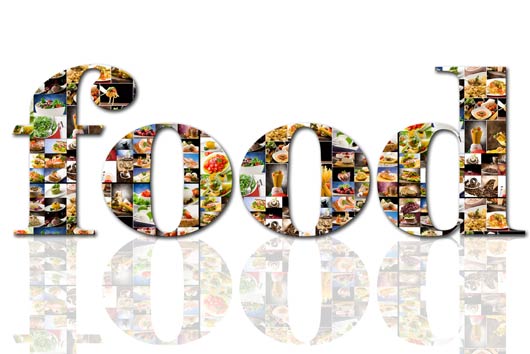
Isn’t it annoying that you always seem to hear people when they have something negative to say, but you rarely remember the compliments or pay attention to the good stuff? Well, that phenomenon exists when it comes to your diet too—you’ll always pay attention when someone tells you all the healthiest foods that are bad for you (and bad for your weight loss plan), and you rarely listen to the good stuff. And those bad raps can be hard to forget, even if they aren’t based in any truth. According to Sharon Palmer, RD, in an article for Today’s Dietitian, “when it comes to food and nutrition, people are on information overload.” She continues to explain that “according to the American Dietetic Association (ADA), as consumers increasingly take responsibility for their own health, people want all the information they can get their hands on to make healthful food choices. This desire can leave people vulnerable to food and nutrition misinformation. While there is an increasing amount of reliable information at the public’s fingertips, people must often wade through a swamp of fallacy to find the pearls of truth.”
So what’s a responsible person who is interested in making smart and balanced food choices supposed to do? After all, seeking information isn’t a bad thing. It’s just that you need to know where to look and you need a little help to know when false info is actually steering you in the wrong direction. So in an effort to help you enjoy your food and make smart nutritional decisions, here are some healthiest foods that you probably ditched from your diet because they got a bad rap. Cue your happy dance and an immediate trip the market so you can load up on your old-school favorite foods.
Read Related: Eating Healthy: How to Not Let Office Food Ruin Your Body
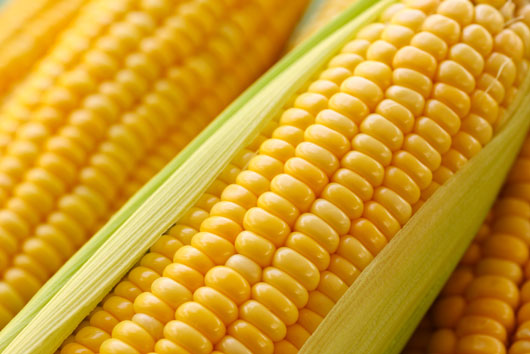
Corn
It seems crazy that corn gets such a bad rap, but many people associate this food with high-fructose corn syrup or a genetically modified corn that is bad for you. On the contrary, corn is a healthy and satisfying grain that is packed with health benefits. According to the experts at Eating Well, “sweet corn is loaded with lutein and zeaxanthin, two phytochemicals that promote healthy vision. A midsize ear also offers a helpful 3-gram dose of dietary fiber.”
Potatoes
If you constantly feel like you should be choosing sweet potatoes over regular old white potatoes, then you’re not alone. Many people believe that white potatoes (similar to white bread) are bad for you. But in reality, they are a great source of potassium, vitamin C and fiber. If you put a massive dollop of butter or sour cream then we can’t really help you in the healthy department, but potatoes on their own are a tasty and healthy food to incorporate into your regular diet.
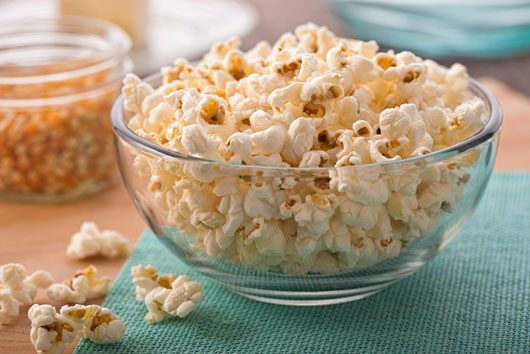
Popcorn
Popcorn isn’t actually as bad for you as you once believed. If it’s covered in butter and salt at the movie theater then there are other issues, but the popcorn alone is a healthy snack that can be low in calories and high in fiber and whole grains.
Cereal
Sure, some cereal is overloaded with sugar and preservatives, and you’ll and up downing a few bowls with almost no nutritional benefits. But if you choose the right cereal, then you’ll actually enjoy a tasty and nutrient-rich meal to start your day. Many cereals are made with whole grains and no added sugar, so you can eat them, guilt-free. And they are often a great source of fiber, which is a crucial part of maintaining a healthy digestive system.
White Rice
In the rice world people have been pushing the health benefits of brown rice for a while, but don’t forget about white rice, which also offers some nutritional perks. While brown rice has more fiber, white rice is a good source of magnesium, phosphorous, and iron. And while you might not want to over-do it with white rice, there is no reason you shouldn’t be able to enjoy it from time to time.
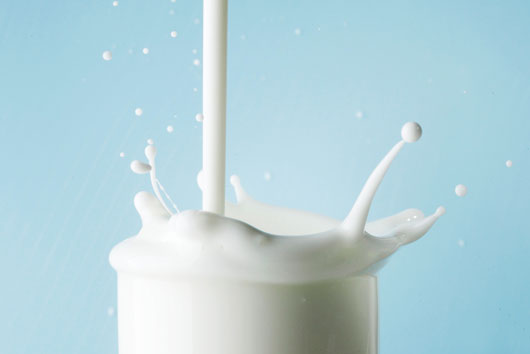
Whole Milk
We’re not sure how or when, but at some point whole milk got a really bad reputation and everyone starting swearing by skim or 1% milk. But full-fat dairy is sometimes a good—even essential—part of your diet. In fact, “an analysis published in the European Journal of Nutrition found people who drink whole milk tend to weigh less and have lower rates of obesity than those who opt for low-fat or skim,” according to CBS News. The trick is to make sure you consume full-fat dairy in moderation and make other healthy and responsible decisions about your diet.
Eggs (yes, including the yolks)
When was the last time you consumed eggs, and we mean the entire egg, including the yolk? A lot of people avoid egg yolks like the plague, opting to only eat egg whites, assuming it is healthier. And while most of the cholesterol in eggs is contained in the yolk, there are also health benefits to eating whole eggs. Egg yolks, as per Livestrong, are packed with vitamin D, phosphorus, riboflavin, choline, and selenium.

Coffee
If you can’t make it through the morning (or afternoon or night) with a cup of Joe, then you’re in luck. Coffee has actually been shown to improve heart health thanks to the high levels of flavonoids, as well as reducing the signs of aging and reducing the risk of Type 2 diabetes.
Wine
Go ahead, pour that second glass of pinot and don’t think twice about it. Recent studies show that drinking wine in moderation daily can help boost your memory, keep you slim, prevent diabetes and more.
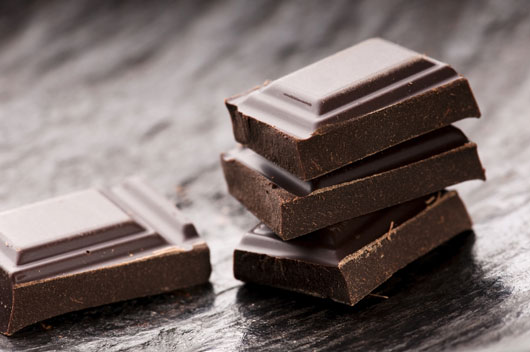
Chocolate
All candy and sugar is not created equal. While some sweets are certainly bad for you, chocolate, specifically dark chocolate, can decrease your bad cholesterol and reduce blood pressure. Plus dark chocolate is high in antioxidants and can improve cognitive performance in elderly individuals.
Peanut Butter
While peanut butter may be high in fat and calories, it’s the good kind of fat from nuts, and it can actually help you control your weight by keeping you full and energized to reduce cravings. Plus peanut butter packs protein and fiber into each serving. Just be sure to manage your portion size and opt for all-natural peanut butter to minimize sugar and preservatives.

